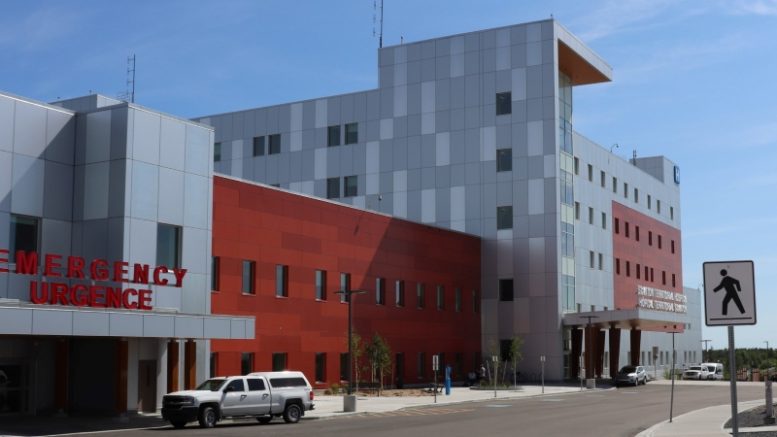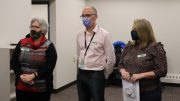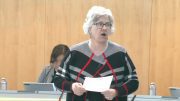The Northwest Territories Health and Social Services Authority (NTHSSA) is establishing Indigenous Patient Advocate positions in each acute care unit in the territory.
Julie Green, minister of Health and Social Services, said in a press release the positions will aim to improve safety, patient experience as well as bridge cultural and language barriers.
Four positions are being created this year, the release says.
The NTHSSA will also be getting an Indigenous Advisory Body composed of representatives appointed by Indigenous governments.
This will provide the Department of Health and Social Services advice on ways to infuse cultural safety, Indigenous tradition, culture and healing practices.
Green says she has been participating in meetings to address anti-Indigenous racism in the healthcare industry.
“The issue of anti-Indigenous racism in our healthcare system has been around for as long the territorial government has provided healthcare to residents,” Green wrote. “The GNWT takes this matter very seriously, and we have certainly learned to do better from past incidents.”
She referred specifically to “a horrible incident” of anti-Indigenous racism that occurred in 2016. This was when 68-year-old Hugh Papik, an Elder from Aklavik, died from a stroke after healthcare workers delayed his treatment, thinking he was drunk.
As a result the department has been completing annual updates to an action plan on critical incident investigations.
Green says another way to combat anti-Indigenous racism is to ensure there is representation in the healthcare field.
She referenced Aurora College’s nursing program.
“This program was created in response to a need for more nurses in northern communities and has earned a reputation of excellence across the country,” she wrote.
She said the GNWT still has more work to do to address anti-Indigenous racism in healthcare.









